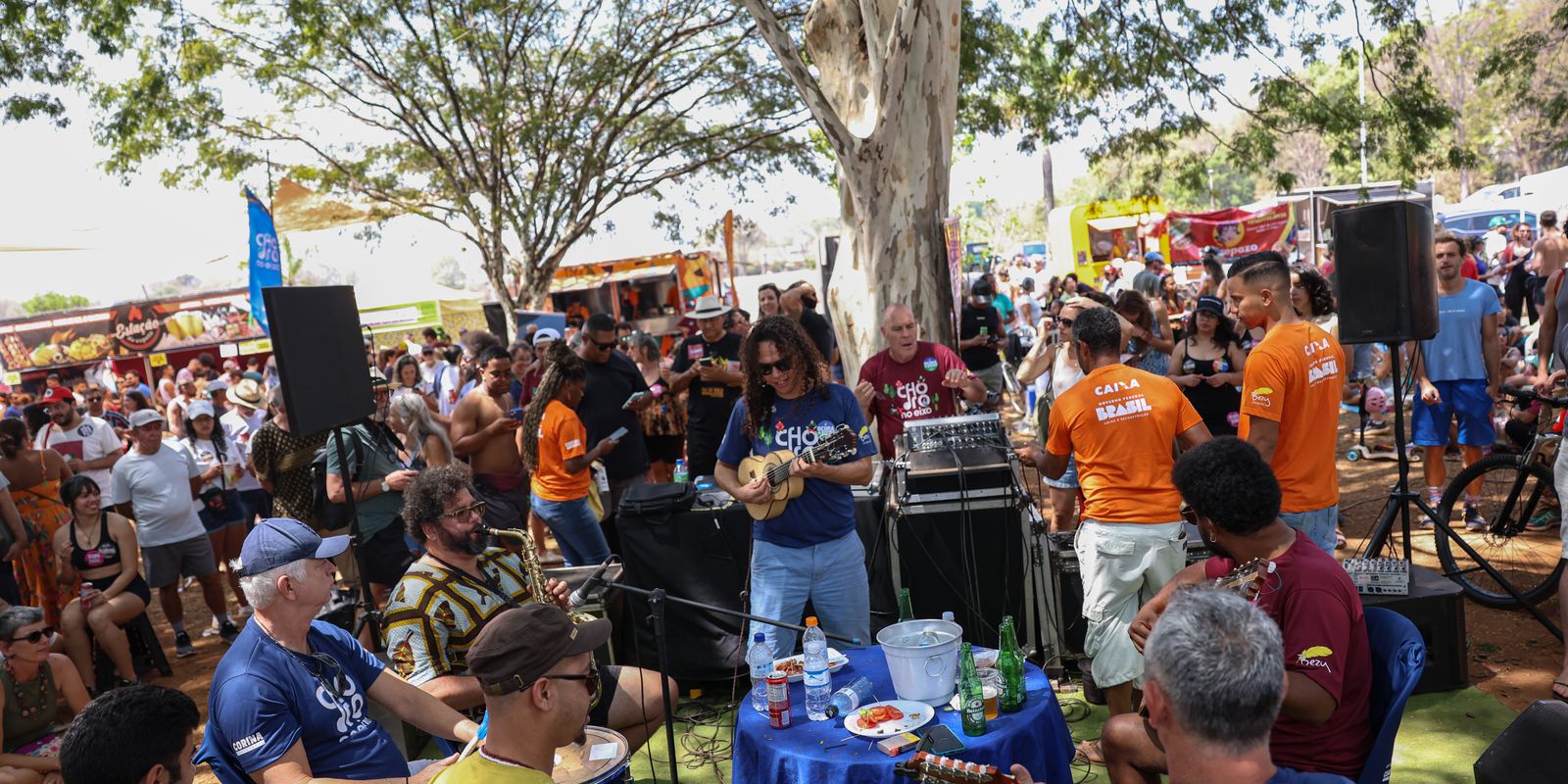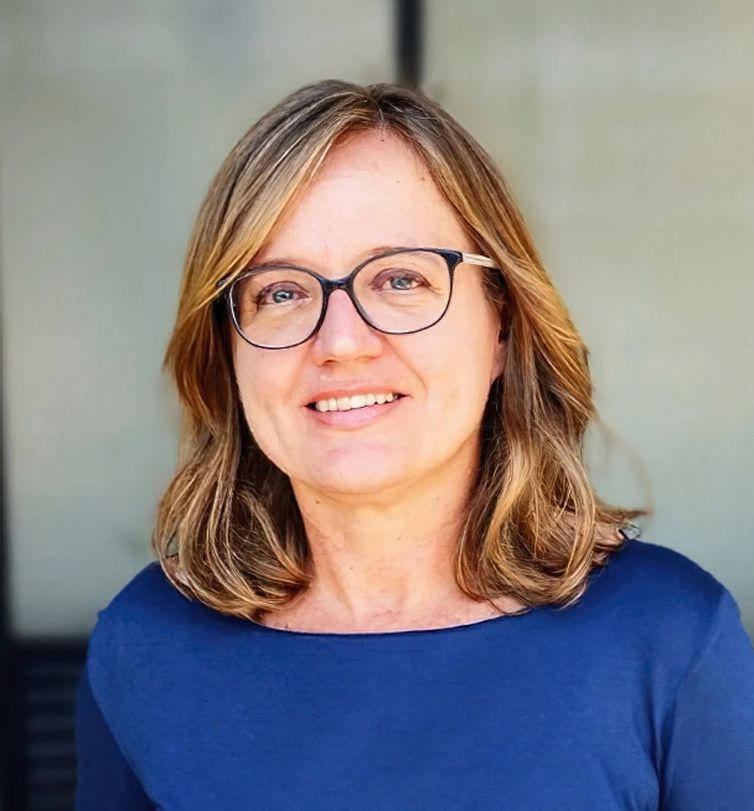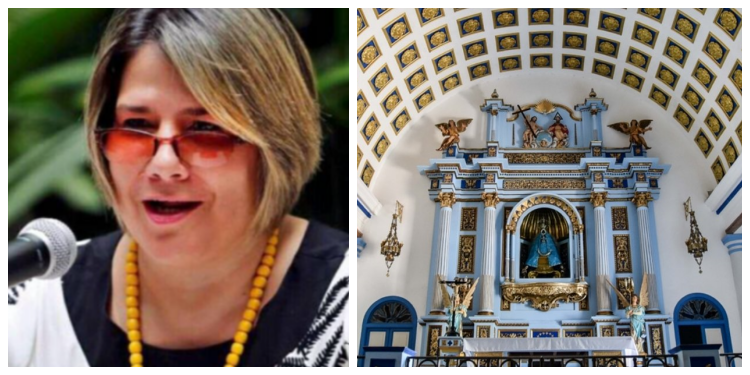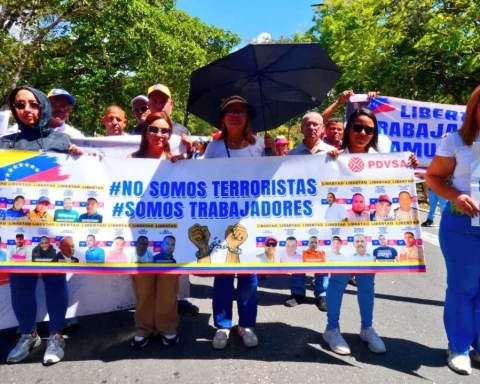A week after the Federal District Government (GDF) ordered the removal of all cultural events and street vendors from Eixão do Lazer, in Brasília, the cultural events Choro no Eixo, Jazz no Eixo, Rock no Eixo, among others, returned to occupy the highway that cuts through the country’s capital this Sunday (8).
Last weekend, an action by the district government prohibited musical events and businesses from taking place on site, without prior notice, causing outrage in Brasília’s cultural scene.
The founder of Choro no Eixo – which brings together a large crowd every Sunday –, musician Márcio Marinho, assessed that the reoccupation of the space this Sunday was the response of society, which has been taking ownership of the space. “It is no longer just about the cultural events that take place in Eixão, I think that now the population has taken Eixão for itself, as it has always been. It is a right of access to the city that we cannot go back and lose”, he highlighted.
The ban reignited the debate on the use of urban public spaces and the conflicts surrounding this occupation, as in the cases of Cais José Estelita, in Recife (PE), and Orla do Guaíba, in Porto Alegre (RS), where different social groups seek to consolidate a certain use of urban spaces.
Maria Fernanda Derntl, a professor of architecture and urban planning at the University of Brasília (UnB), an expert in urban planning, assessed that this should be an opportunity for Brasília to foster coexistence between different groups. “There was a big reaction and we see the population taking ownership of the space. Public space can be temporarily occupied, as long as there is no crime or destruction of property. Perhaps this intense use of the Eixão requires thinking about the best model for coexistence. It is truly an exercise in democracy,” the expert argued.
Axis
The so-called “Eixão” of Brasília is the highway that cuts through Plano Piloto, the central region of the capital. Every Sunday and holiday, this road is closed to cars and taken over by the local population, who usually practice physical activities on the so-called “Eixão do Lazer”. Since the pandemic, the space has also begun to be occupied by cultural events and street vendors selling everything from food and drinks to handicrafts.
For cavaquinho player Márcio Marinho, from Choro no Eixo, the space should consolidate itself as a cultural, gastronomic, sports and tourism hub in the capital. “Instead of being restricted, this format of access to culture and leisure should be expanded to other regions of the Federal District, such as Taguatinga and Ceilândia, and not just to the central area of Plano Piloto. This is an example of how society can have the right to the city in a democratic way,” he stated.
In addition to musical groups, political parties, parliamentarians and social movements gathered this Sunday at Eixão to demand the use of the space for culture and street trading.
Worker Auricélia Rocha, 37, sells around 120 lunches on Sundays at Eixão. She has worked there for two years and regretted last week’s action, which she considered “brutal” and which made her lose the food she had prepared to sell.
“I depend on Eixão. My source of income is Eixão. I don’t have a formal job. We make barbecue during the week and on the weekends and come and sell it here in Eixão. It’s my job and that of three other people,” he said.
Government of the Federal District
The Federal District Government has announced that cultural events will not be prohibited at the site. According to Governor Ibaneis Rocha (MDB), last week’s action responded to complaints from residents of locations near the events.
“[A ação foi orientada] “We are only organizing commerce in the area, which will be more functional as we can register and regularize the activity. Nothing that takes away from Eixão its character as a space for democratic coexistence, creativity, freedom and security,” Ibaneis commented on a social network.
After the popular reaction, the governor commented that the Eixão do Lazer could not be turned into a “Eixão da cachaça”. The sale of alcoholic beverages on the side of the highways in the Federal District is prohibited by District Law 2,098 of 1998.
New rules
Last Tuesday (3), a new decree was published to regulate the use of Eixão. According to the text, the Federal District Highway Department (DER-DF) will have 30 days to develop a plan for the use of Eixão. The participation of civil society in the development of the plan is not expected.
The decree also states that, until the plan is approved, DER-DF must grant provisional authorization to street vendors, excluding those who sell alcoholic beverages.
One of the organizers of Ocupa Eixão, cultural coordinator Leonardo Rodrigues, argued that society should participate in the development of the Plan for the use of Eixão. “We need to build this together, with residents, the population, interested parties and the government. A dialogue must be established before taking action,” he commented.
For Maria Fernanda Derntl, coexistence in public spaces involves dealing with differences and diversity, but these conflicts should not be seen as something bad, but rather as an opportunity for society to practice democracy. “The occupation of the city and its spaces is, by nature, problematic. In this case, there was a unilateral action, which was not carried out with the various groups interested in occupying the city. But this is an excellent opportunity to create broader spaces for discussing the city’s issues and problems,” the expert highlighted.



















